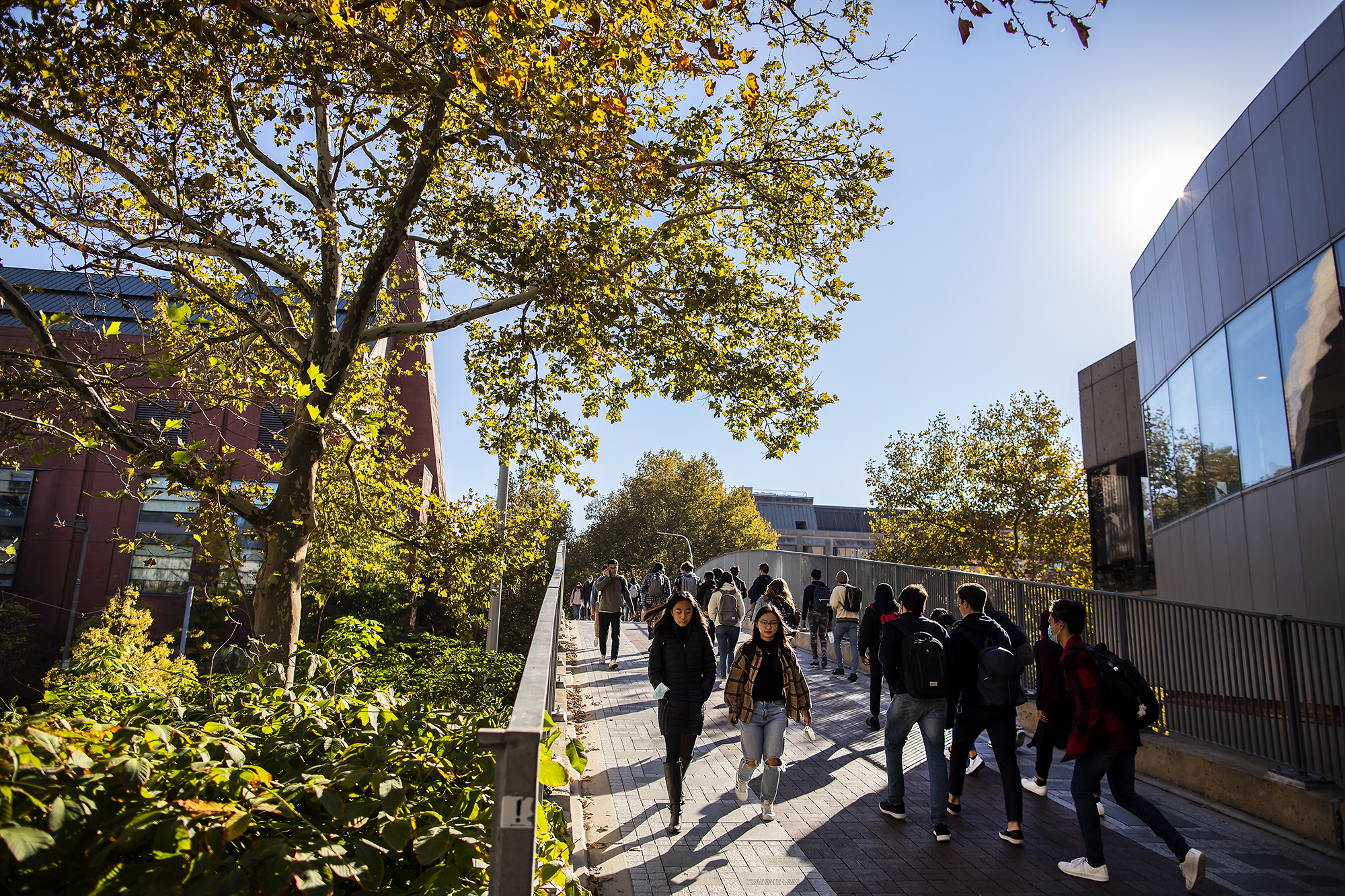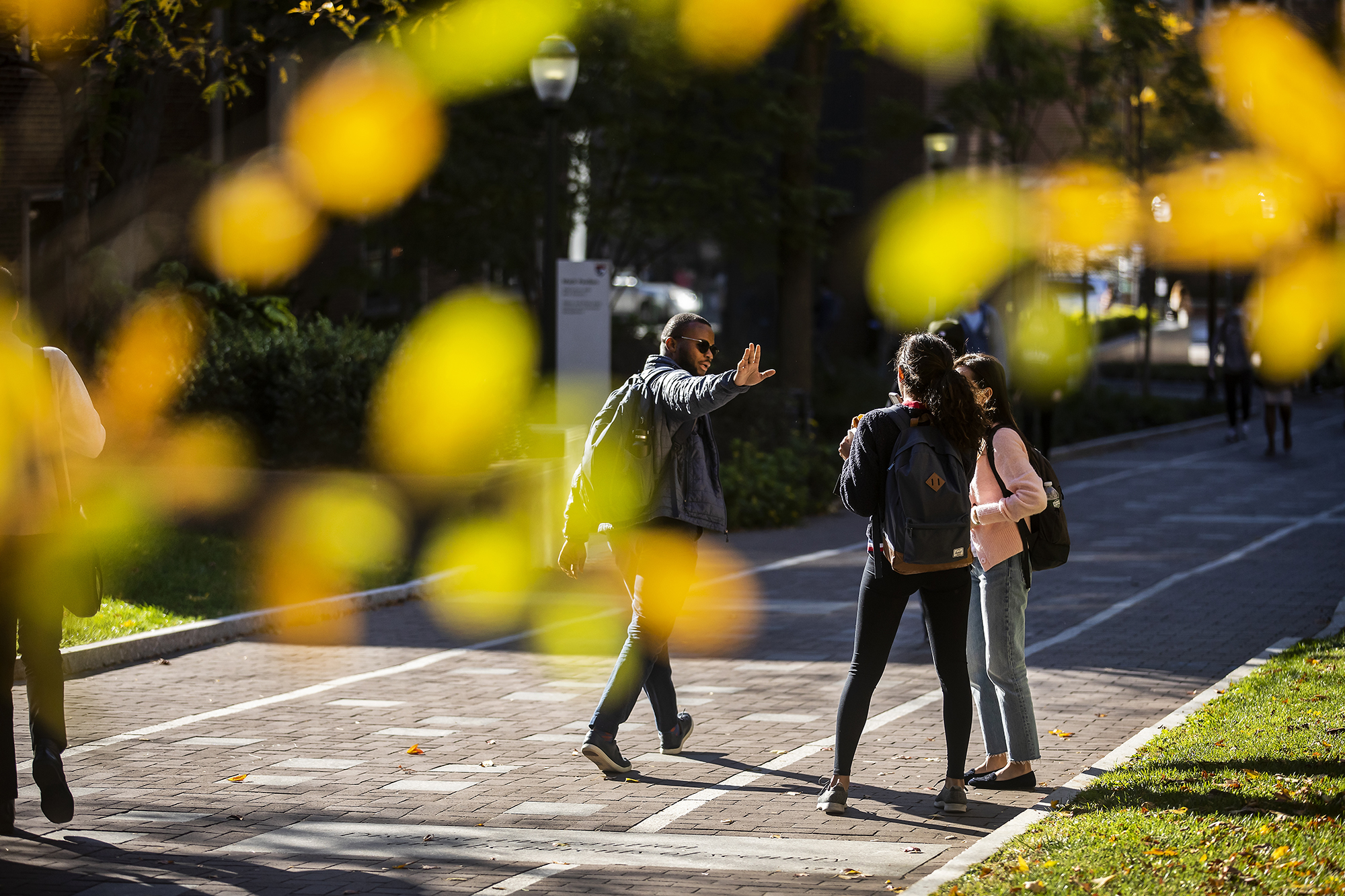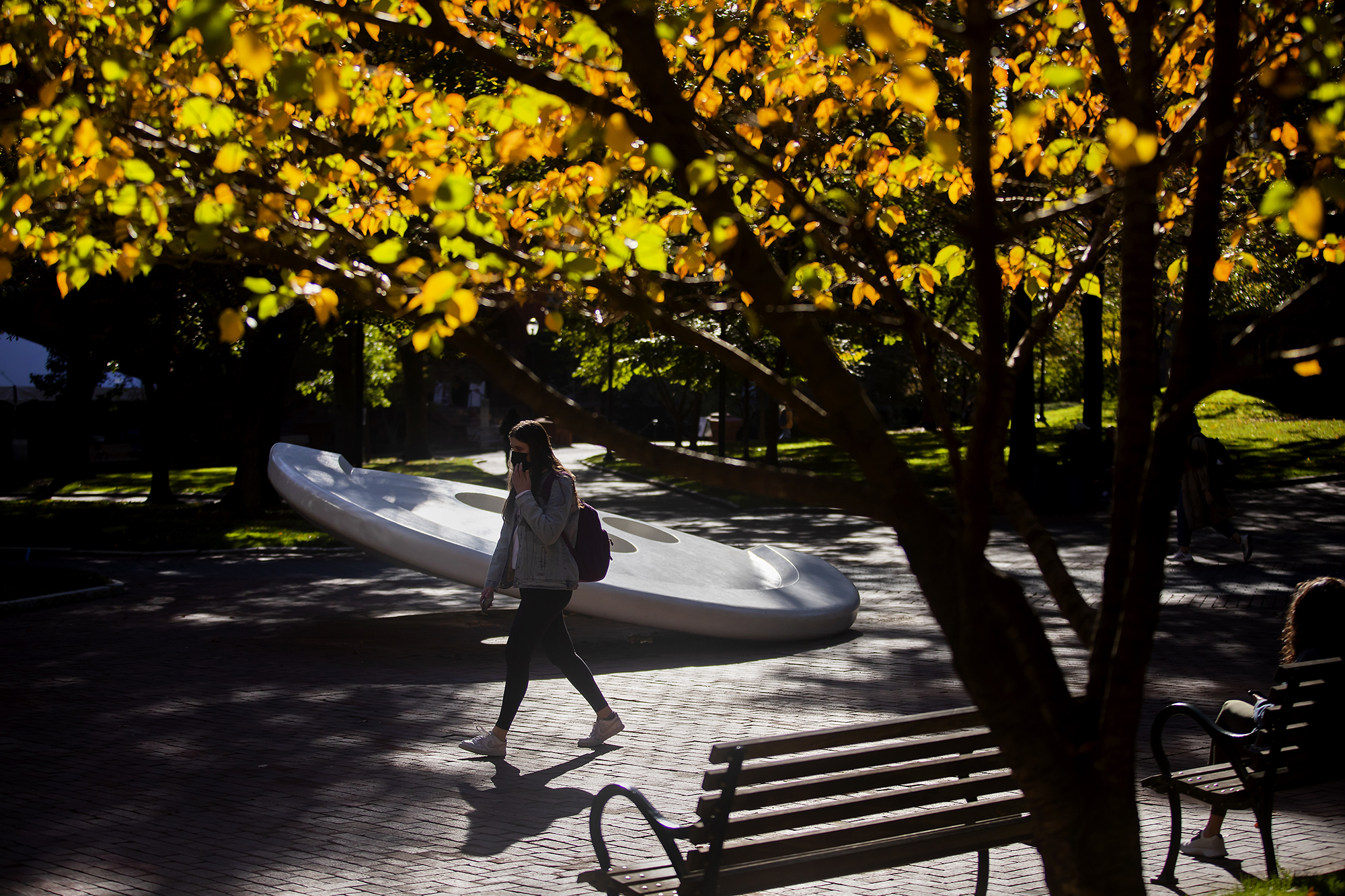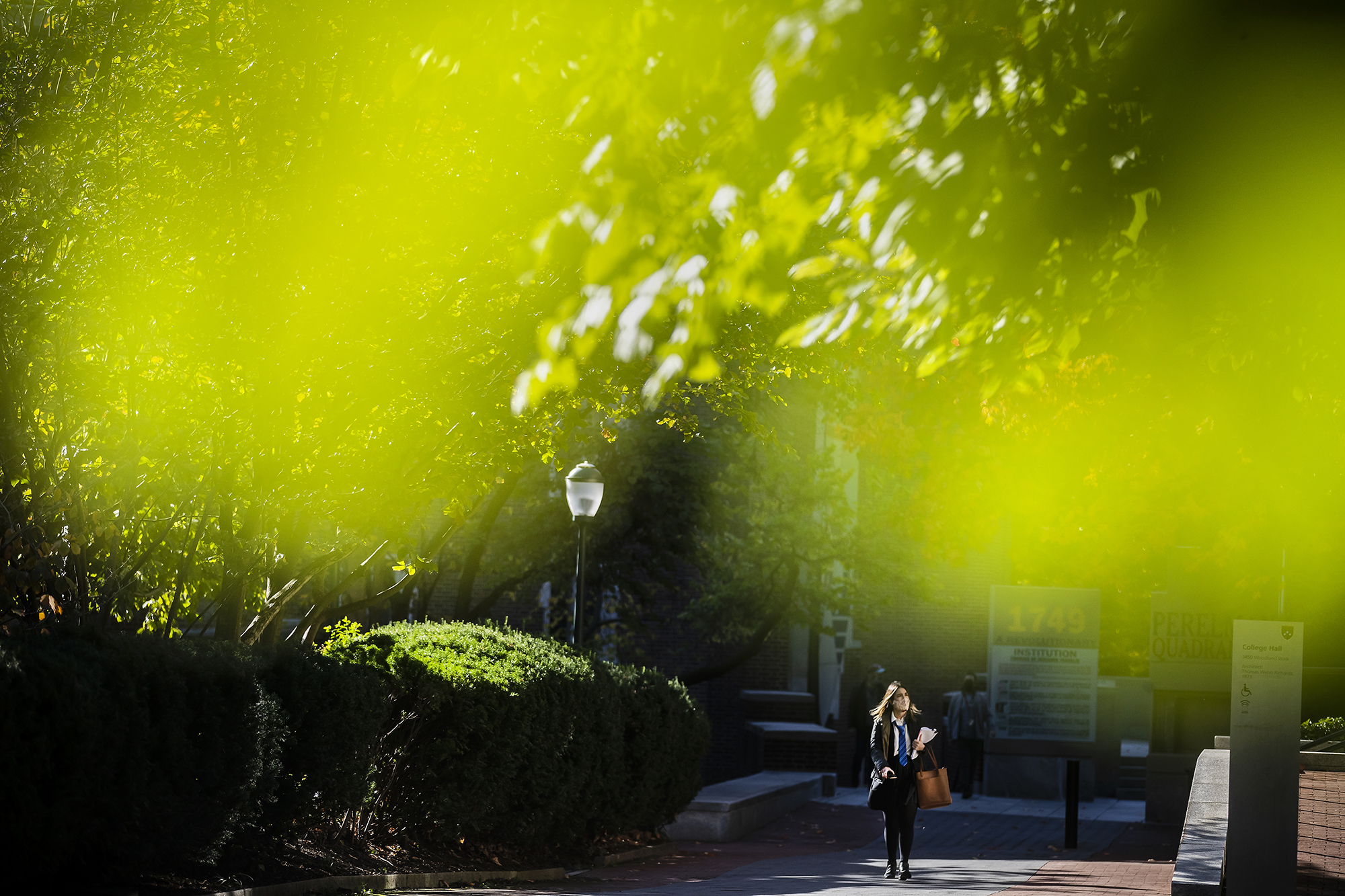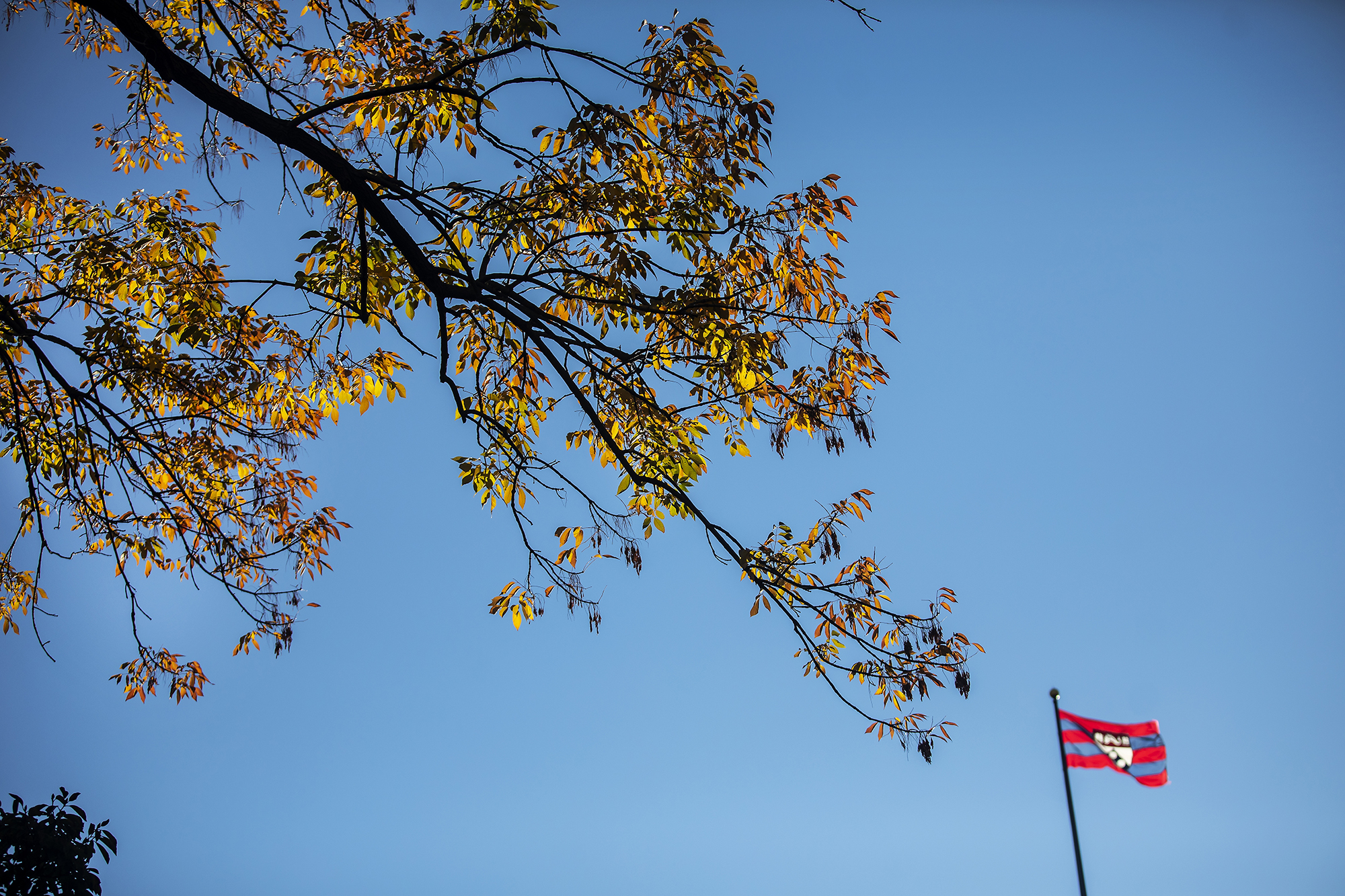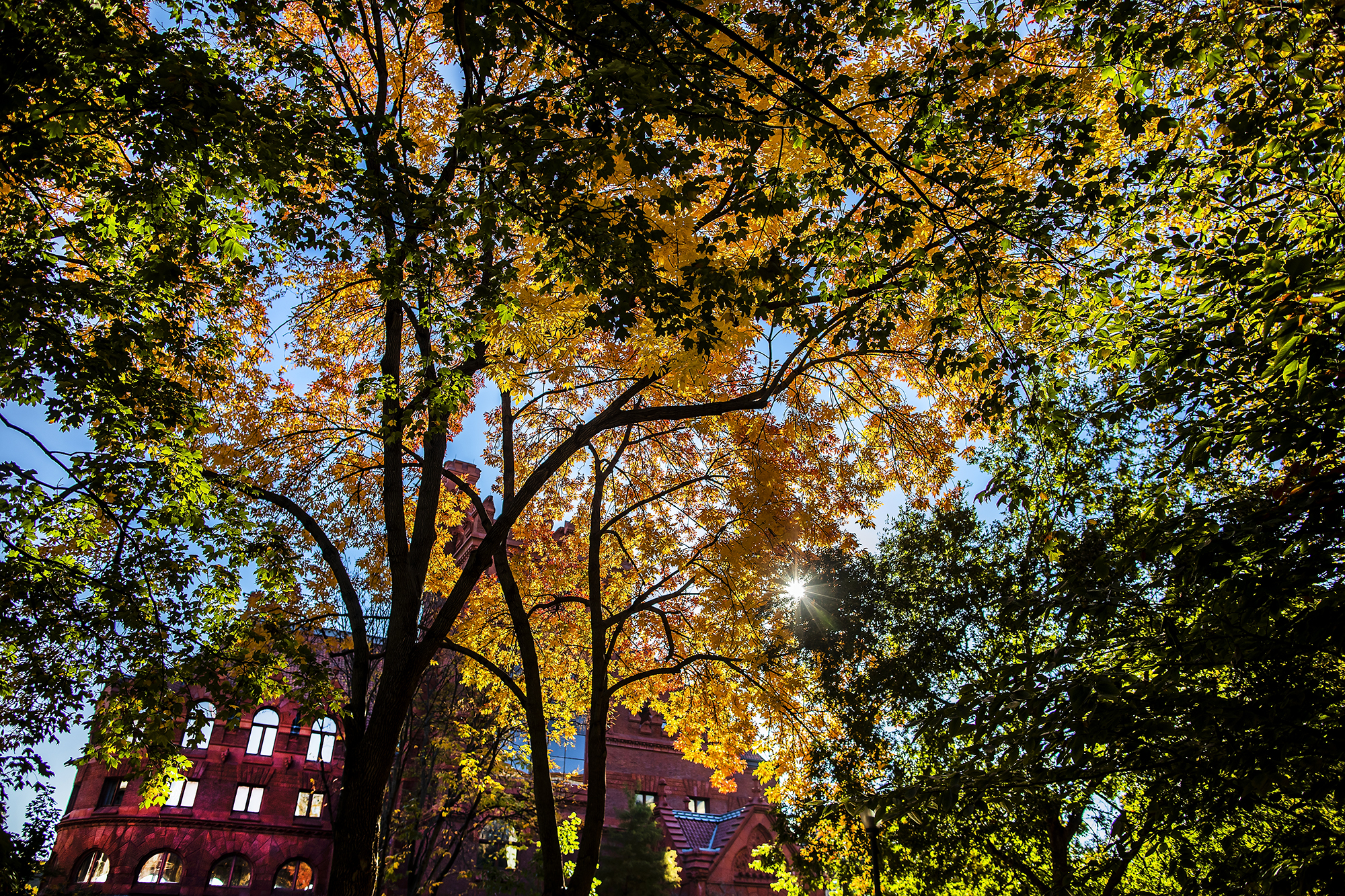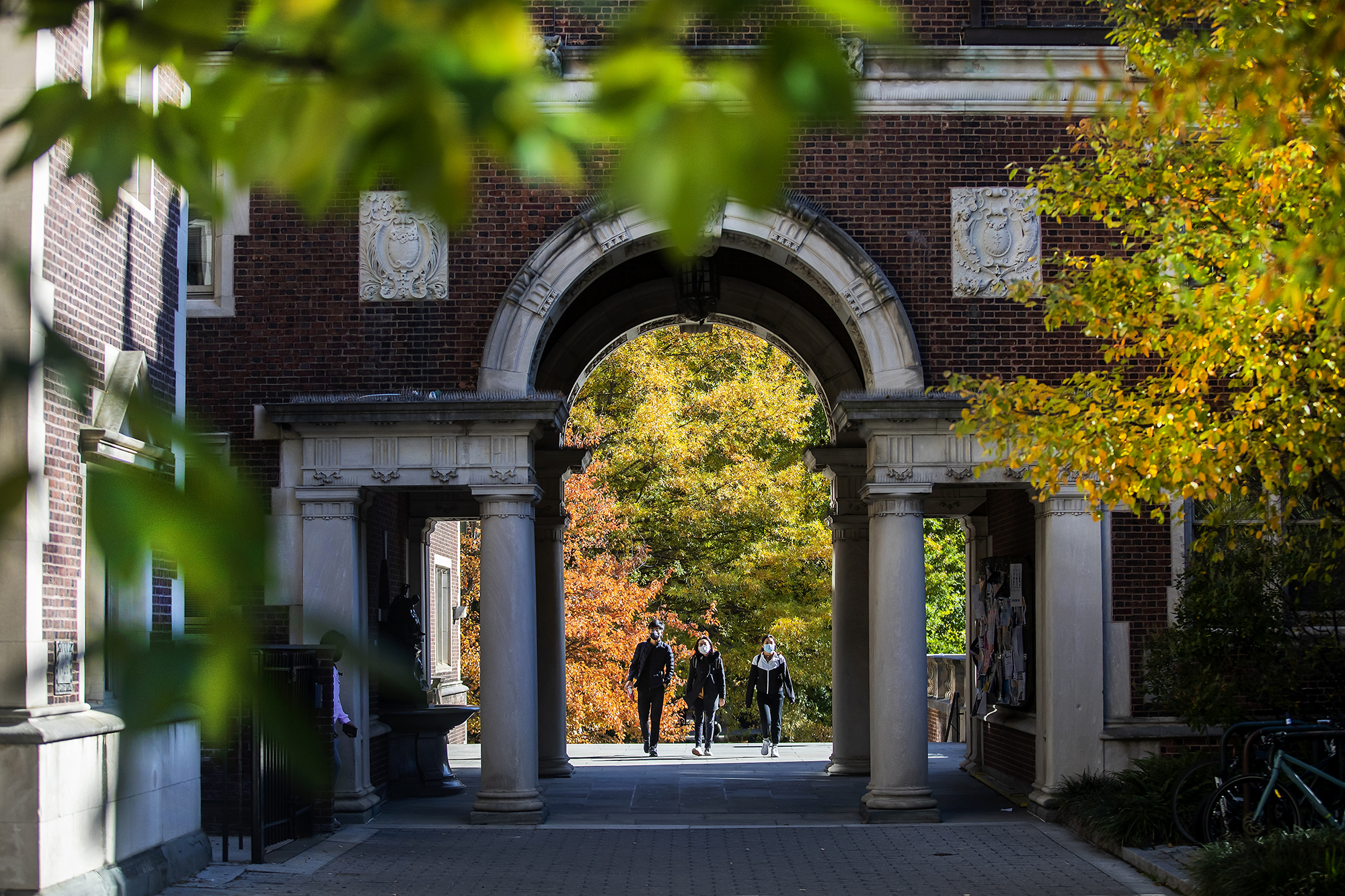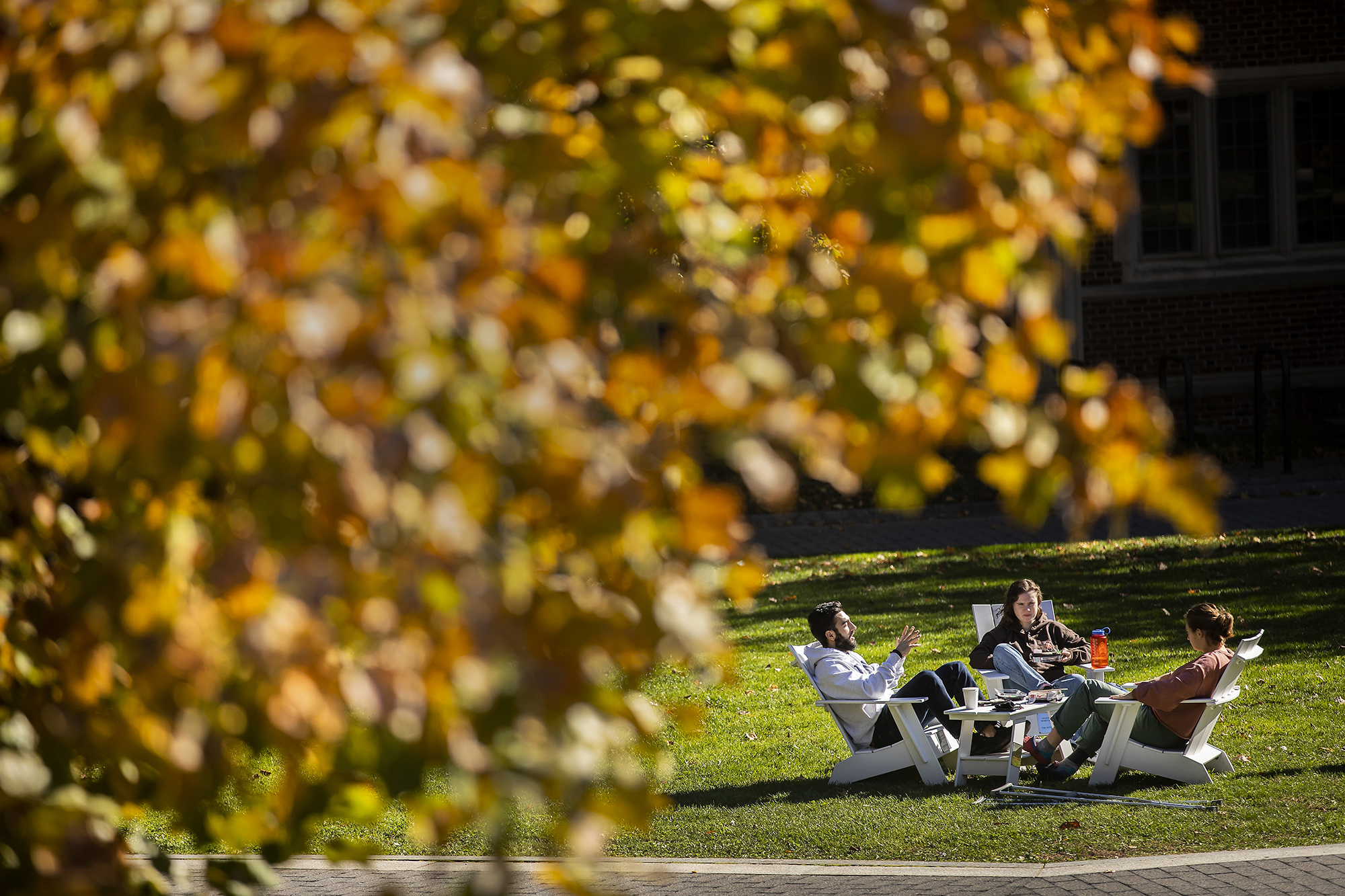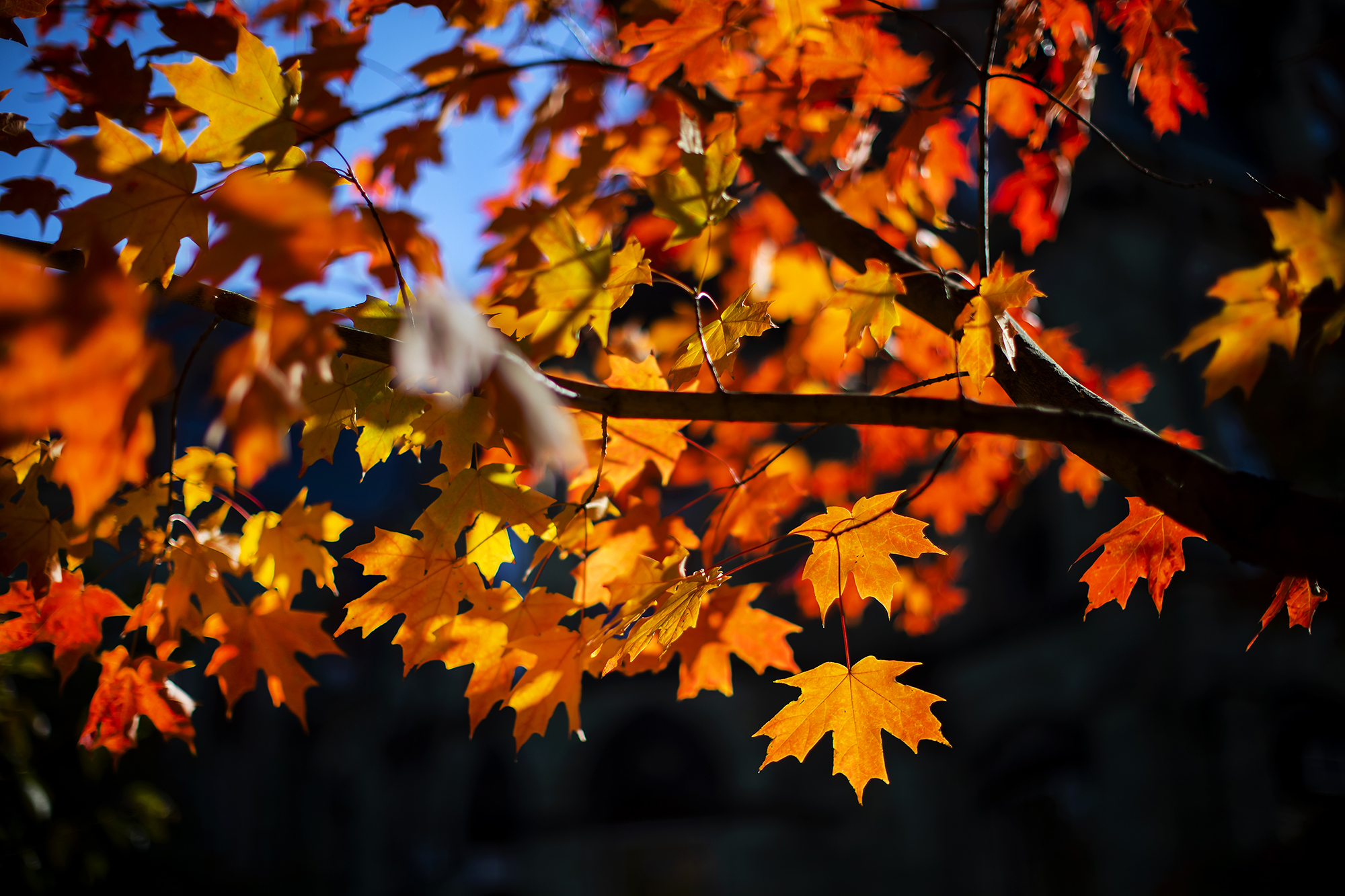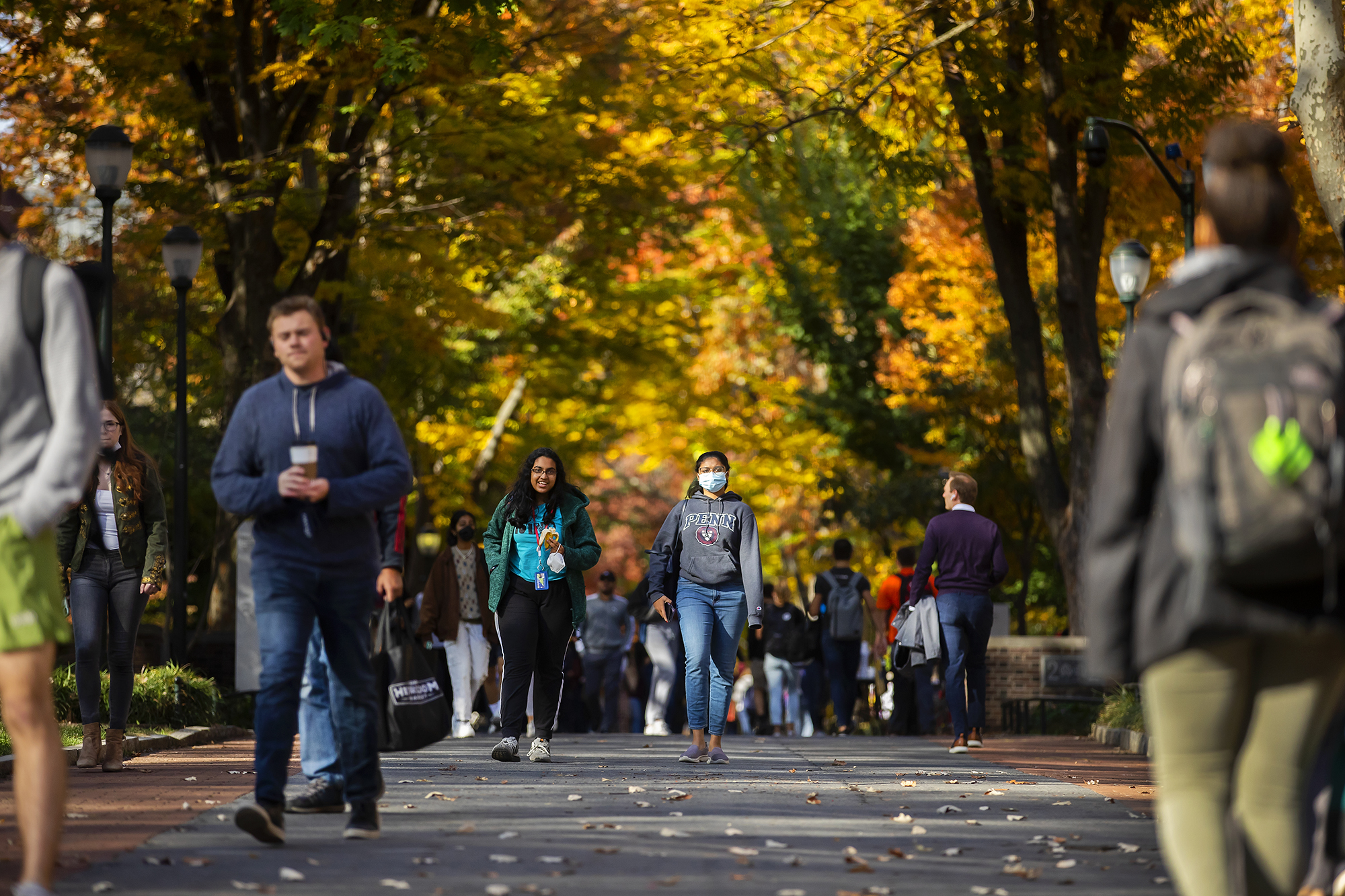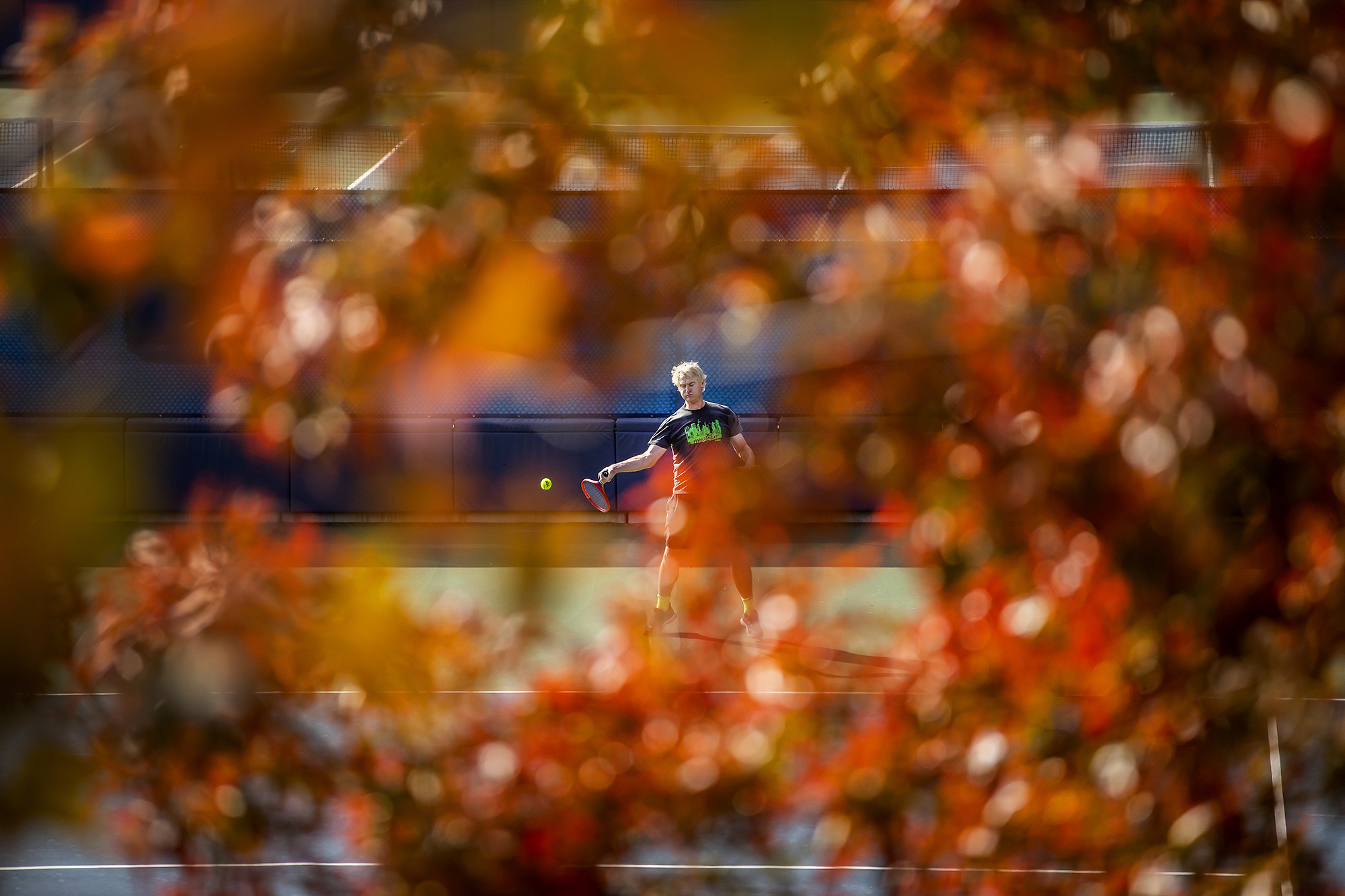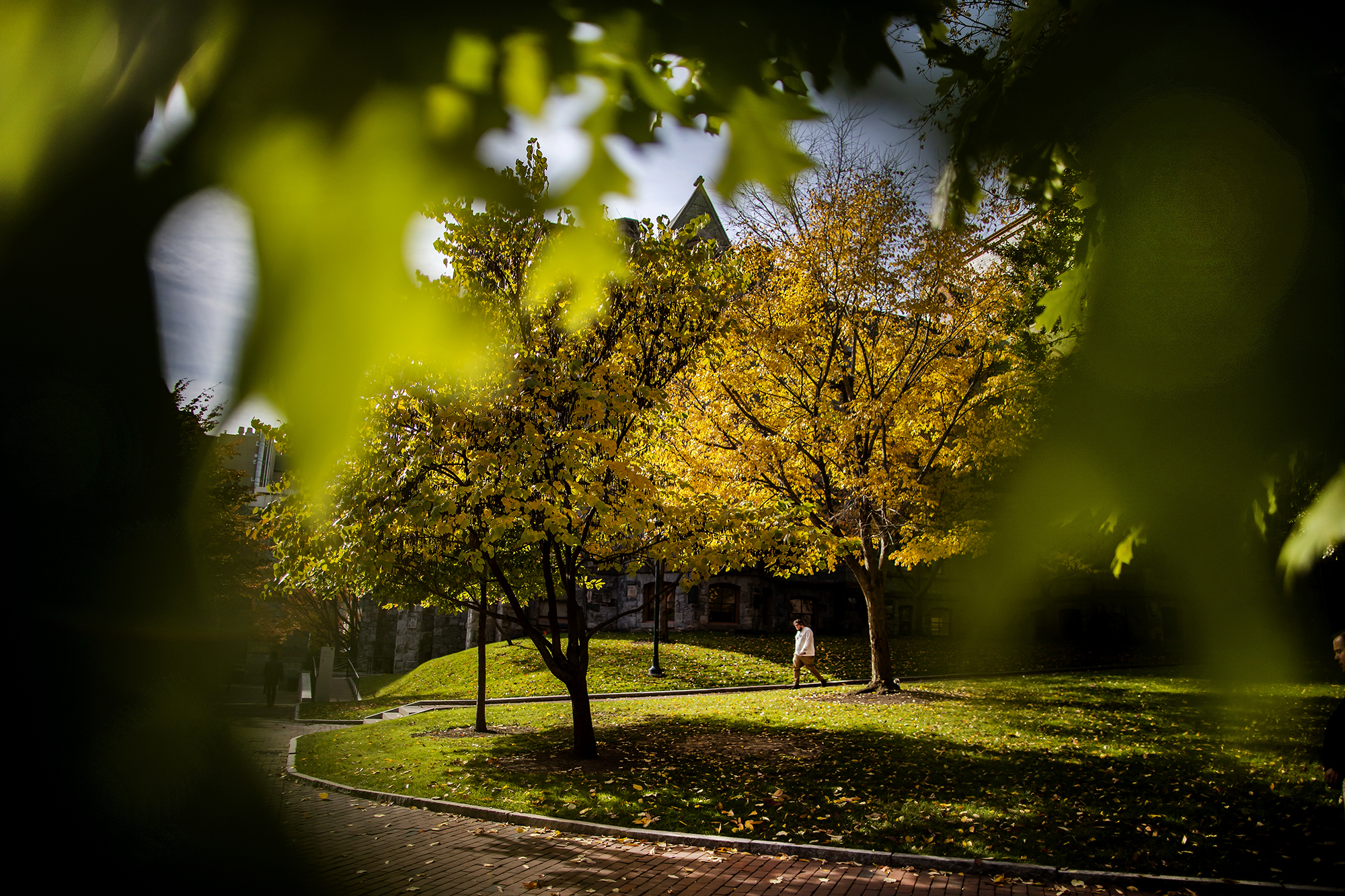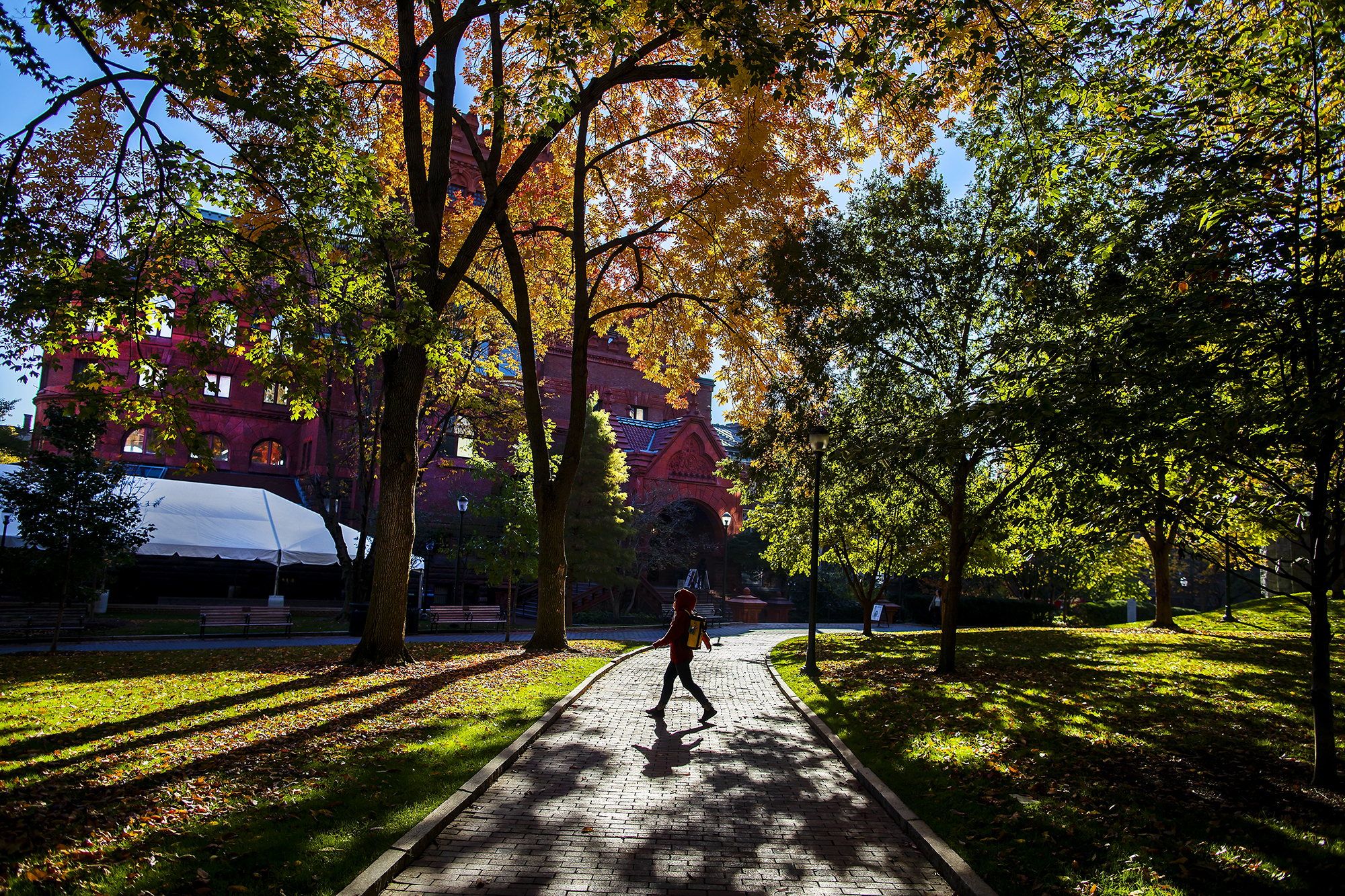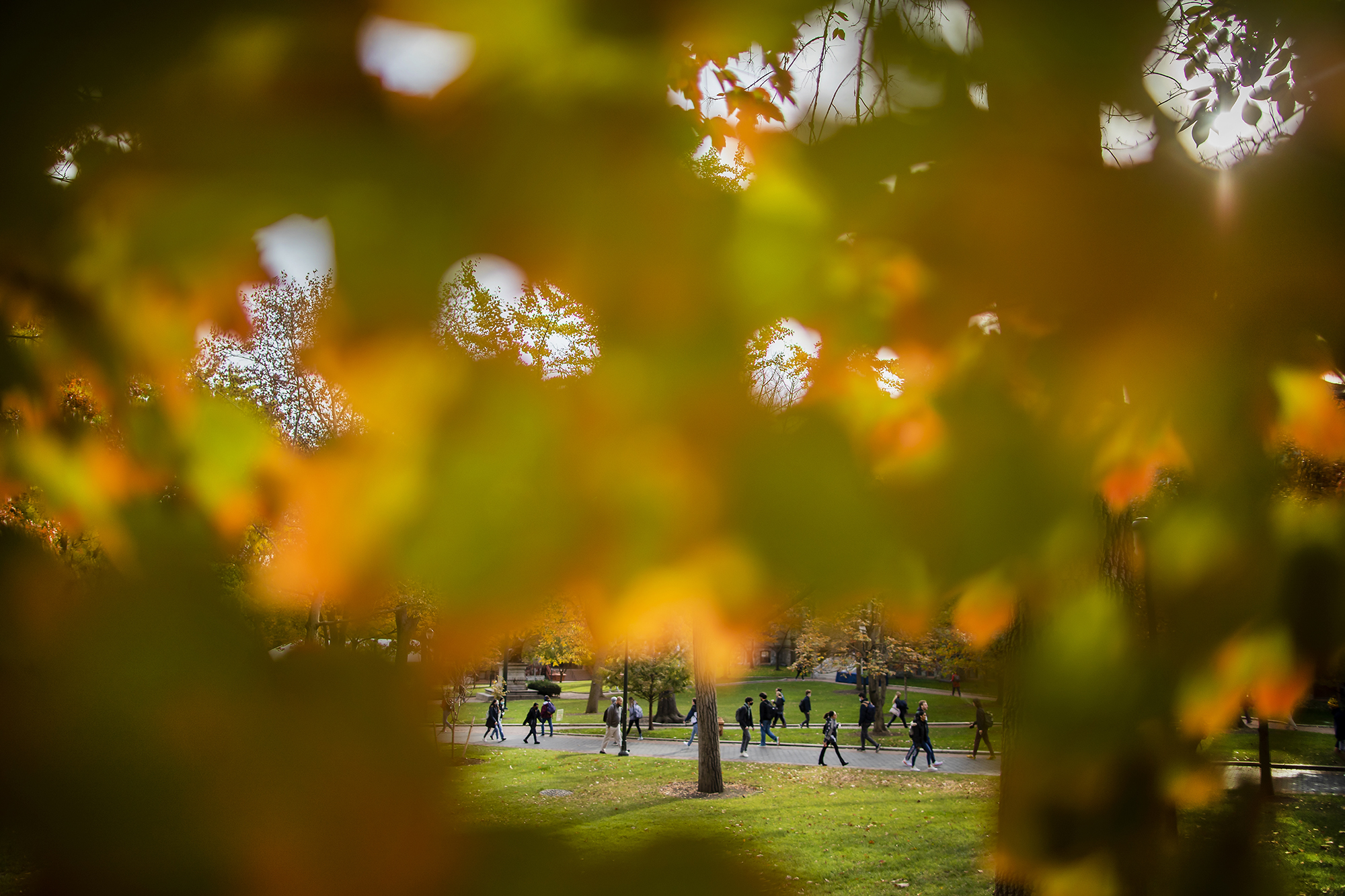
As urban campuses go, Penn has always been a rare green oasis. And now, an oasis of deep orange, bright red, and vibrant gold—the traditional markings of peak fall in the mid-Atlantic. It’s the shift to cooler nights, and a good dose of sunlight, that trigger leaves to turn, breaking down the chlorophyll that gives leaves their green color, and shutting down their metabolism of photosynthesis to prepare for winter. The drop in chlorophyll levels bring out the yellow and orange pigments, and synthesize a new red pigment. The result is a stunning canvas for a camera lens.
The timing of COP26 coincided with Penn’s peak leaf-peeping timeline—which helps emphasize the urgency of the climate crisis. “Leaf color displays may be less stunning if the climate changes, for example by causing warmer fall nights in the Northeast and mid-Atlantic regions,” says Doris Wagner, the Robert I. Williams Term Professor of Biology in the School of Arts & Sciences. “Another factor that can impinge on the fall foliar color display is premature leaf drop triggered by summer droughts, storms in early fall with high winds and rain, or early frost.”
But why do some trees—such as broadleaf trees—drop their leaves in the fall to begin with? “Leaves lose a lot of water to the atmosphere during photosynthesis, with broad, fleshy leaves incurring much larger water losses than pine needles or small scaly leaves,” Wagner explains. “The lost water is replenished from the soil via water uptake in the roots and water transport through the tree trunk and branches to the leaves. If photosynthesis were triggered in broadleaf trees on a sunny winter day, the water lost not could not be replenished if the ground and the water in the tree is frozen.”
But with prolonged droughts becoming more common, like in California in recent years, trees cannot replenish water lost from leaves via the soil. The result is a loss of foliage and even tree death.
While Penn’s trees are carefully maintained, so well to earn Tree Campus USA accolades year after year, the larger picture of fall foliage is in a delicate balance with the climate crisis. Enjoying the beauty and majesty of a campus awash in color can also serve as a call to action to tread lightly and consciously.




